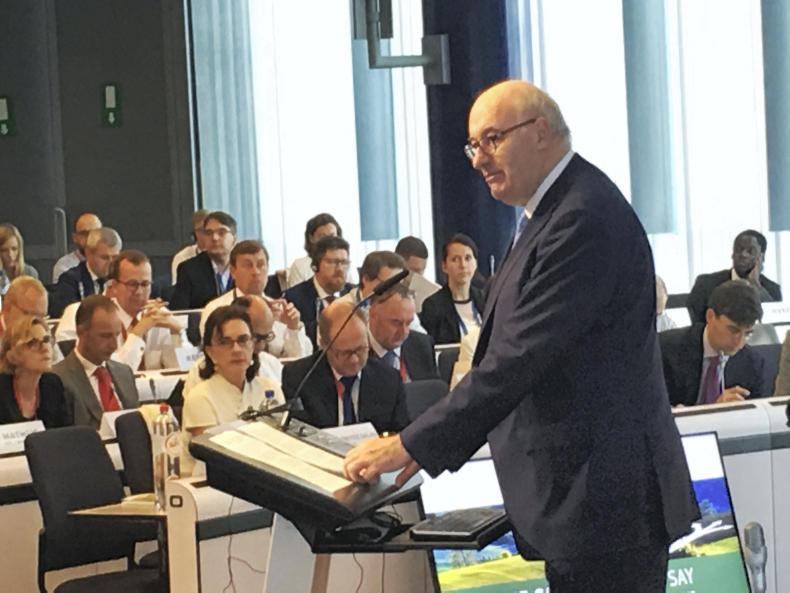The EU Common Agricultural Policy is shaped by the prevailing political thinking among EU member states. In theory, all are equal, but in practice it is the large countries with the biggest contributions to the budget that have most influence. The influence of the farming lobby in these countries is also critical. France has the strongest, and has been a traditional ally of Ireland on agricultural matters.
This is the first CAP in almost half a century that the UK won’t be part of. Traditionally, they were the most hostile member towards support for farming. This position found allies in Denmark, Sweden and the Netherlands, all of whom are big net financial contributors to the EU. With the UK off the stage, it should mean that the loudest voice against support is gone and perhaps there can be greater consensus.
However, the big downside is that there will be around €10bn missing from the UK budget once they leave. With CAP still accounting for just under 40% of the total EU budget, the maths alone suggests that there will be a loss of €4bn to the CAP budget. That means either the remaining members have to find the extra money, or the EU has less to spend.
Despite Brexit, the EU is now more politically stable than might have been expected at the beginning of this year. Elections in the Netherlands and France have returned strong pro-EU governments. New French president Emmanuel Macron is a particularly strong advocate of the EU. In Germany, Chancellor Merkel is expected to be returned in September elections. In any case, the main German opposition headed by former European Parliament President Martin Schulz is equally pro-EU.
Aside from money, CAP 2020 will have to be shaped against the terror threat and refugee crisis, which weren’t particular features in previous negotiations. It is not that either of these impact directly on agriculture, but they do compete for the EU budget and the demands are likely to grow in the years ahead.
The other major backdrop to CAP 2020 is climate change and the commitment made by the EU in the Paris Agreement to reduce EU greenhouse gas emissions by 40% by 2030. There will be a strong environmental dimension to CAP 2020. Meanwhile, there is widespread dissatisfaction with the environmental delivery from so-called second pillar payments, which have not been particularly appealing to farmers either.
The current CAP was put in place in the aftermath of the financial crisis, as the euro was vulnerable to economic meltdown in Greece, Italy, Portugal and Ireland. Among this group, Ireland has led the way in restoring financial stability, but concerns remain with Greece and Italy in particular. Should a banking crisis occur there, then the stability of the euro would be hit again, influencing CAP negotiations towards financial prudence and currency volatility management.






 This is a subscriber-only article
This is a subscriber-only article









SHARING OPTIONS: